While in New York to attend UN Meeting on Peace-building and Sustaining Peace on April 24-25, Iranian foreign minister has had an interview with the US National Public Radio (NPR) about US-Iran relations, the Iran nuclear deal and the war in Syria. Here's the highlights of the NPR's staff member Steve Inskeep and Mohammad Javad Zarif conversation:
Elaborating on his latest tweet on the world powers' nuclear deal with Iran saying deal is all or nothing, Iranian Foreign Minister Mohammad Javad Zarif said "well you see, this nuclear agreement is the result of almost 12 years of posturing and negotiations, and basically two years of very intensive negotiations," adding "what's in the deal? Every word, almost, has been the subject of a lot of discussion. Every issue in the deal has been thoroughly negotiated. It doesn't reflect our position. It doesn't reflect the US position. It reflects a compromise. In places we compromise in order to get something else. In places, the US compromise in order to get something else as well."
Zarif added "but when you look at the entire package, it is a package. You cannot pick and choose between the package and say, "I want this, that and the other element improved." Had it been possible to improve that, either from your perspective or from our perspective or from the perspective of any other participants in the deal, it would have been done so.Article continues after sponsorship"
He later said "I believe Europe has said that they are not prepared to renegotiate this agreement and I think it's very prudent, because anybody who participated in the negotiation of this deal would tell you that opening this package would be tantamount to opening a Pandora's box, and we'll never be able to close it."
Regrading the possibility to renegotiate the nuclear deal, Zarif said "I think the United States doesn't want to send a message to the world that if you negotiate with the United States, the US is going to come back, after you had reached an agreement, and tell you, "I don't like these parts of the agreement and I want them renegotiated," adding "then nobody will be prepared to compromise with the United States. Nobody will be prepared to accept or to make concessions to the United States in order to achieve some of their intended results — because they know that at the end of the day the United States is going to come back and say, "Whatever I gave you, I want back."
With regard to a question on the French President Emmanuel Macron's trip to Washington DC to persuade President Trump to back off in some way his demands for changes to the deal, Iran's foreign minister said "well, we have good relations with France and we believe that the Europeans want to preserve the nuclear agreement. We hope that President Macron uses his visit to the US — and after him, [German] Chancellor Merkel — in order to impress upon President Trump that this deal as it stands is in the interest of both the United States and the rest of the international community, and they will be much better served if they were to respect the terms of the deal," adding "because the United States — particularly President Trump since he assumed office — have not been in the deal. They have not officially left the deal, but they haven't actually implemented the deal. So I think that's a message that they should — that the president should receive from his guests."
Zarif once again reiterated "because our nuclear program was never intended to produce nuclear weapons. Now, I'm not asking you to rely on me.”
“Director Pompeo, who's the head of the CIA and who should know everything, said, according to the best of my knowledge as head of CIA, Iran was not 'racing towards a bomb' before the agreement and will not be 'racing towards a bomb' if you break the agreement,” Zarif stressed.
In response to a question regarding Iran's support of the Syrian government, Iran's Zarif said "we are fighting extremists. You see, the problem with the narrative that is being pushed in the United States is that they're saying Iran supports Syrian government. But they don't say that we went to the help of the Iraqi Kurds when they were fighting the same menace," adding "And we supported Mr. Barzani of Iraqi Kurdistan. That's the policy. So what defines our policy is what we're fighting against... we have our own principles and we stick to our principles, and we ask everybody to respect — reject the use of chemical weapons, respect international humanitarian law...Our own track record in the fight, the war that was imposed on us [by Iraq in the 1980s] — eight years of war, use of chemical weapons against us, we never retaliated with the use of chemical weapons. So that's our track record, and that is what we preach. I mean it's not just something that we set red lines and then violate those red lines because those who are saying that chemical weapons are the red line watch the use of chemical weapons against us and supported the ones who were using it. So I mean, that type of hypocritical approach has nothing in serious politics, has no place in serious politics...What we need to do is to put an end to this conflict. What we need to do is put an end to the Yemen conflict. And Iran has been prepared to look and to help achieve a political solution both in Syria and in Yemen."
On the recent US-led missile attacks against Syria, he said "you see, what we have said time and again, you're pushing a narrative that you use chemical weapons, we believe that we need international investigation of the sites. We don't know why the United States prevented an investigation into Khan Shaykhun," adding " you don't have enough evidence. Evidence has to be collected by impartial observers from the scene. And I mean, your evidence may be good for you but I mean the United States doesn't have a good track record. I remember when the United States was trying — the CIA was trying to make it believe that Iran used chemical weapons. But every international investigation shows otherwise. But what we insist — and I believe nobody with that history of supporting the use of chemical weapons against Iran has the capability of taking the high moral ground."
With regard to the Saudi-led war on Yemen, Iran's foreign minister said "well, we we have said from the very beginning let's not allow this war to continue...Immediately after the beginning of the bombardment, Iran called for a ceasefire and we've been ready for a ceasefire. It's been Saudi Arabia that has hoped to be able to achieve a quick military victory. That quick military victory has taken them three years, and we haven't received, reached anywhere. So what is important is we see the airplanes that are bombing the people of Yemen. That bomb today, 20 people killed, 20 people in a wedding ceremony in Yemen. We need to bring that to an end. Iran is ready to use whatever influence. We're not, I mean, it's not our planes. Saudi Arabia is bombing them. So Saudi Arabia can decide today and stop this bloodshed. Iran cannot decide today and stop the bloodshed, but we can use our influence, and I'm committing ourselves. I'm committing Iran to use whatever influence that we have in order to stop this, provided that the other side is ready to stop."
Iran's Foreign Minister Mohammad Javad Zarif arrived in New York on Thursday for a six-day visit to attend the UN Meeting on Peace-building and Sustaining Peace on April 24-25.
KI/NPR


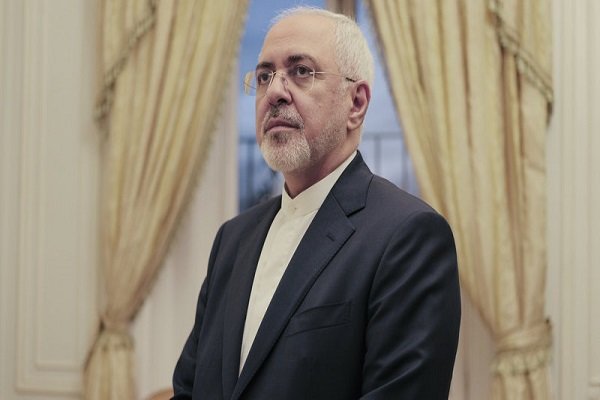



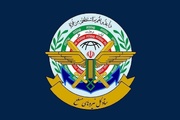
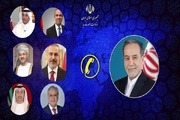

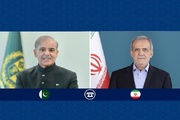
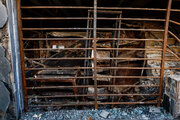

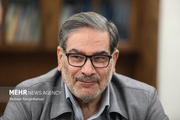
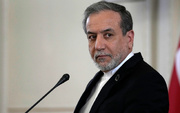


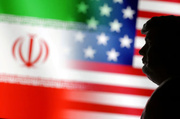
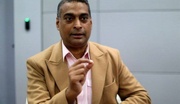




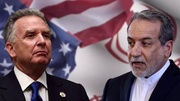
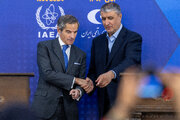



Your Comment